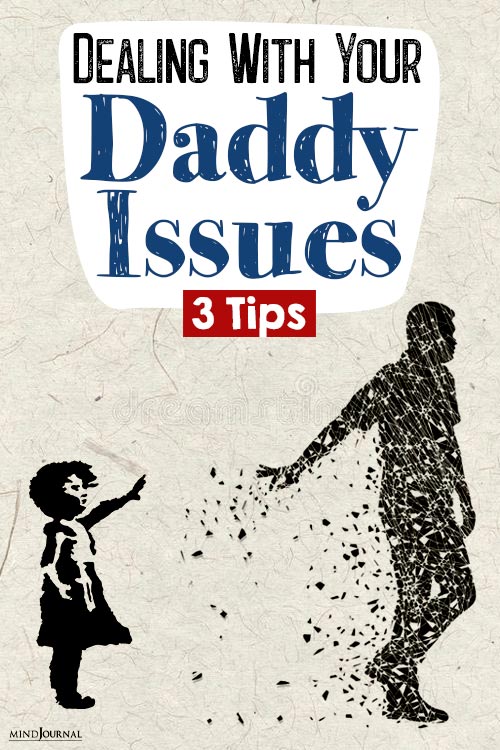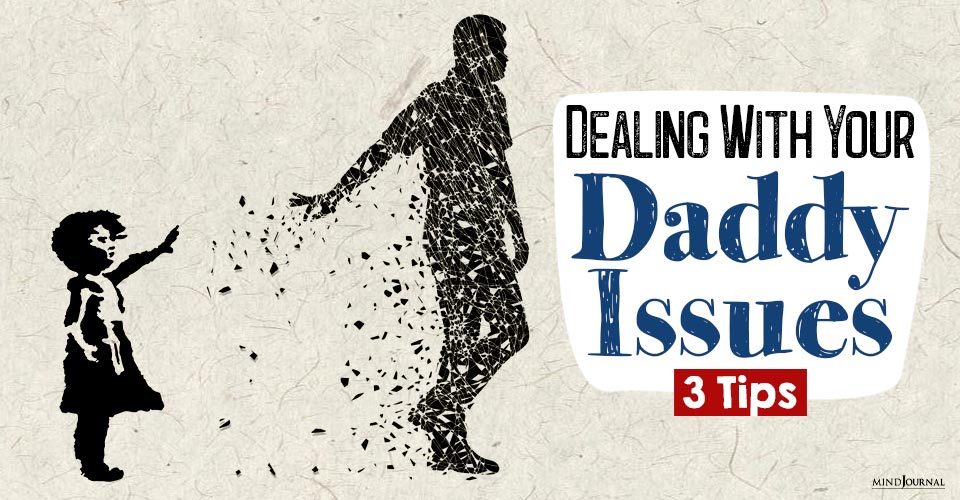When you have to deal with daddy issues for your whole life, it can seem exhausting, painful, and heartbreaking. After all, it’s not your fault that your father was never there for you, is it?
Did your father spend very little time with you? Was he rarely present mentally when he was there physically? Was he closed off emotionally? If you answered yes to some of these questions, your dad may have been emotionally unavailable. If he was, you might have daddy issues.
Daddy issues is a term that describes the effects of the emotional wounds inflicted on a child from an emotionally unavailable father. Those wounds, if left unhealed, may lead you to look for external validation from men to know your worth.
You may only feel worthy when getting male attention. You may put a man’s needs ahead of yours and seek to please men or get approval from them. Because important needs weren’t met by your father when you were a child, it’s normal to long for love, care, and attention from a man as an adult. Why wouldn’t you have daddy issues when you didn’t get what you needed?
Daddy issues aren’t really about you. They’re about your dad. Too often women are given the label of having “daddy issues,” as though they’re the ones to blame for their wounds. Being told you have daddy issues can bring up shame and hurt. But really, your dad is responsible for not meeting your needs.
Related: Narcissistic Fathers: The Dark Shadow They Cast From Childhood To Adulthood
If your dad had issues and wasn’t able to be emotionally available, why wouldn’t you be wounded? Daddy issues are nothing to be ashamed of. You’re not defective or damaged. Your needs weren’t met, and you now have healing to do.
I believe people are doing the best they can, or they’d do better. This post isn’t about blaming dads. It’s about owning the impact of having an emotionally unavailable father. Regardless of how good of a person he was or wasn’t, you were impacted by his inability to love you and care for you the way you deserved and needed.
If you have daddy issues, there’s nothing to be ashamed of. It’s time to recognize that nothing is wrong with you. Daddy issues should no longer be a way to put women down. It should be a reason to be compassionate to yourself and proud that you survived a painful relationship with a primary caregiver.
It’s time to celebrate yourself for all that you’ve survived and for working through your daddy issues. Letting go of shame is a huge step toward healing!
If you have daddy issues, the following tips can help you along your healing journey.
3 Tips On How To Deal With Daddy Issues
1. Identify old stories.
When children are hurt by parents, they tend to hate themselves, not the parent. Start being curious about your relationship with your father and how it impacted you.
Remember how you felt with him or because of him growing up. What beliefs did you develop about yourself when your needs weren’t met, or when you felt abandoned, or hurt by him?
Related: 7 Steps to Healing Childhood Trauma as an Adult
2. Grieve.
Give yourself space to grieve what you didn’t get; grieve what you missed out on. We need to grieve in order to heal. Honor your pain, and give yourself as much love and kindness as you can.

3. Notice.
Start noticing how these old stories (beliefs) impact your life now. Do you keep yourself small, do you seek external validation to feel good about yourself, do you seek perfection, etc. There are many possible ways these old (but still very present) beliefs show up and dictate your behavior.
Healing from daddy issues is a journey, and one well worth going on.
Related: 3 Kinds Of Childhood Emotional Wounds That Keep On Haunting You
If you have daddy issues, I encourage you to wear your label with pride because you’ve had to be strong in ways you should never have had to be.
Written By Caitlin Cantor Originally Appeared On Psychology Today









Leave a Reply
You must be logged in to post a comment.